TELEPHONES ANSWERED 24 HOURS A DAY
Recent Blog Posts
Can You Be Charged with Federal Identity Theft Without Stealing Money?
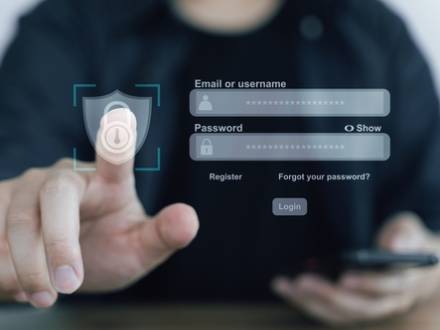 Identity theft is much more than stealing credit cards or draining a bank account. Under federal law, what matters is whether someone’s personal information was used without legal authority. If you have been accused of this type of crime, a Chicago, IL federal identity theft defense lawyer can explain your rights and help you build a defense.
Identity theft is much more than stealing credit cards or draining a bank account. Under federal law, what matters is whether someone’s personal information was used without legal authority. If you have been accused of this type of crime, a Chicago, IL federal identity theft defense lawyer can explain your rights and help you build a defense.
What Is Federal Identity Theft Under U.S. Law?
Federal identity theft laws differ from state laws in how and where they apply. Federal cases often involve conduct that crosses state lines or affects federal programs like Social Security, Medicare, or immigration. State identity theft laws, like those in Illinois, typically apply when the misuse happens within the state or targets individuals or businesses located there.
The actual federal statute is fairly vague. Under 18 U.S.C. § 1028, it is a crime to "knowingly transfer, possess, or use" another person’s identification with intent to commit an unlawful act. That includes using someone else’s name, Social Security number, or driver’s license for something illegal. The word "knowingly" is important. Prosecutors must prove you were aware the information belonged to someone else and that you used it on purpose, not by mistake.
When Is Murder a Federal Crime?
 Murder is often a crime that is prosecuted in the state judicial system, penalized with state sentences. However, in certain circumstances, murder can cross into federal jurisdiction. Consider the factors that make murder a federal crime and the legal implications. Then, contact a Chicago, IL federal murder defense lawyer who understands the laws that apply to these cases. Federal cases move quickly, and the penalties are severe. With experienced legal representation, you can fight the charges.
Murder is often a crime that is prosecuted in the state judicial system, penalized with state sentences. However, in certain circumstances, murder can cross into federal jurisdiction. Consider the factors that make murder a federal crime and the legal implications. Then, contact a Chicago, IL federal murder defense lawyer who understands the laws that apply to these cases. Federal cases move quickly, and the penalties are severe. With experienced legal representation, you can fight the charges.
What Makes a Murder a Federal Case?
Under federal statutes 18 U.S.C. § 1111, murder is defined as the unlawful killing of another person with intent or extreme disregard for life. In general, murder becomes a federal crime when it violates a law of the United States or takes place under federal authority.
How Do Federal Agents Build a Conspiracy Case Against You?
 A federal conspiracy charge is a serious offense. You do not have to commit the crime itself to face punishment. If the government believes you agreed with others to break the law, you could be charged. These charges often come with harsh penalties, such as years in prison and significant fines, and the impact on your criminal record can bleed into every aspect of your life. Federal agents use tools like surveillance, informants, and financial records to try to prove their case. If you are under investigation, hiring an experienced Chicago, IL federal conspiracy defense lawyer is the first step in challenging the evidence and the allegations.
A federal conspiracy charge is a serious offense. You do not have to commit the crime itself to face punishment. If the government believes you agreed with others to break the law, you could be charged. These charges often come with harsh penalties, such as years in prison and significant fines, and the impact on your criminal record can bleed into every aspect of your life. Federal agents use tools like surveillance, informants, and financial records to try to prove their case. If you are under investigation, hiring an experienced Chicago, IL federal conspiracy defense lawyer is the first step in challenging the evidence and the allegations.
What Is a Federal Conspiracy Charge?
In general, a conspiracy is an agreement between two or more people to commit a crime. Even if the crime itself never happens, the agreement and any step taken toward carrying it out can still lead to charges.
What Is Structuring and What Are Its Penalties?
 Structuring is the act of breaking down large cash transactions into smaller amounts to avoid bank reporting requirements, and it is treated as a serious federal crime. Even people handling lawful funds can face harsh penalties if they attempt to sidestep financial disclosure rules.
Structuring is the act of breaking down large cash transactions into smaller amounts to avoid bank reporting requirements, and it is treated as a serious federal crime. Even people handling lawful funds can face harsh penalties if they attempt to sidestep financial disclosure rules.
The government views this conduct as an intentional effort to conceal transactions, and federal agencies devote significant resources to identifying and prosecuting these cases. If you are under investigation, a Chicago, IL federal crimes defense lawyer can help you understand your rights and build a strong strategy to protect your future.
How Does Federal Law Address Structuring?
Under 31 U.S.C. § 5313, the Bank Secrecy Act, financial institutions must file a Currency Transaction Report (CTR) for cash transactions of more than $10,000 in one business day. To avoid this scrutiny, some individuals deliberately break down deposits or withdrawals into amounts just under the $10,000 threshold. This is called structuring, and it is a standalone federal crime under 31 U.S.C. § 5324.
Is a Federal Weapons Charge Automatic Prison Time?
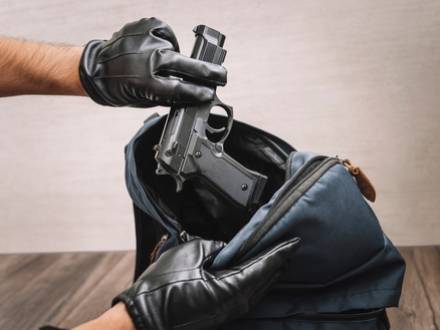 If you are accused of violating federal gun laws, you may be subject to significant consequences that can affect your future. Federal gun crimes are prosecuted by federal agencies like the Bureau of Alcohol, Tobacco, Firearms and Explosives (ATF). These charges are often associated with long prison terms and mandatory minimum penalties. It is essential to understand the nature of the charges, the potential penalties, and the defenses available to you. A Chicago, IL gun crimes defense attorney can help you understand your rights.
If you are accused of violating federal gun laws, you may be subject to significant consequences that can affect your future. Federal gun crimes are prosecuted by federal agencies like the Bureau of Alcohol, Tobacco, Firearms and Explosives (ATF). These charges are often associated with long prison terms and mandatory minimum penalties. It is essential to understand the nature of the charges, the potential penalties, and the defenses available to you. A Chicago, IL gun crimes defense attorney can help you understand your rights.
Mandatory Minimum Penalties for Federal Firearms Offenses
Federal firearms offenses come with strict mandatory minimum sentences that can lead to severe consequences. These penalties depend on the nature of your charge and your criminal history. However, those convicted tend to face significant prison sentences. For example, under 18 U.S.C. § 924(c), if you are caught using or carrying a firearm during a crime of violence or drug trafficking, you will face a minimum prison sentence of five years.
Can the Feds Charge You for Posting Something Online?
 People have the right to express strong opinions or criticism online. However, that does not mean that every statement is shielded by free speech principles when it comes to federal criminal law. If you have been charged with a federal internet crime or think you may be under investigation for something you posted online, a Chicago, IL federal crimes defense attorney can help. These cases can be complicated, and fighting a federal agency requires an extensive understanding of the laws that apply.
People have the right to express strong opinions or criticism online. However, that does not mean that every statement is shielded by free speech principles when it comes to federal criminal law. If you have been charged with a federal internet crime or think you may be under investigation for something you posted online, a Chicago, IL federal crimes defense attorney can help. These cases can be complicated, and fighting a federal agency requires an extensive understanding of the laws that apply.
What Federal Laws Apply to Online Posts?
Federal law covers many types of online conduct that can lead to criminal charges if certain lines are crossed. Consider some examples of statutes that come into play when someone’s online posts spark federal interest:
-
Interstate threats and communications: Statute 18 U.S.C. § 875 criminalizes transmitting threats to kidnap or harm another person across state lines, including via online platforms. A single tweet, email, or post can qualify if it is deemed a "true threat." Convictions carry fines and potential prison time, depending on the severity.
Federal Charges for Transnational Money Laundering
 When federal prosecutors pursue money laundering charges at the highest levels, they often do so with major investigations into organized criminal enterprises. These cases involve not only hiding huge sums of illegal funds, but also allegations of drug trafficking, racketeering, and violent crimes committed to protect or expand the operation.
When federal prosecutors pursue money laundering charges at the highest levels, they often do so with major investigations into organized criminal enterprises. These cases involve not only hiding huge sums of illegal funds, but also allegations of drug trafficking, racketeering, and violent crimes committed to protect or expand the operation.
If you have been charged with transnational money laundering, you are facing some of the most serious federal criminal penalties in the federal system. A skilled Chicagoת IL federal criminal defense attorney can help you understand what is at stake and how to build a strong defense.
What Is Transnational Money Laundering?
Transnational money laundering is the movement of illegal money across borders with the intent to disguise where it came from. It often involves multiple countries, shell companies, cryptocurrency transactions, and large-scale financial schemes. The goal is to "clean" the money, or transform it into funds that appear legitimate.
Can I Be Charged With a Federal Crime if I Never Left My State?
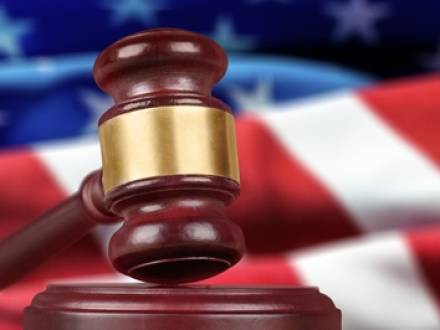 Many people assume that federal crimes involve crossing state lines or international borders, but that is not always the case. You can be charged with a federal offense in Illinois without ever leaving Chicago.
Many people assume that federal crimes involve crossing state lines or international borders, but that is not always the case. You can be charged with a federal offense in Illinois without ever leaving Chicago.
Federal criminal law is broad. Jurisdiction often depends on whether the alleged conduct affects interstate commerce, involves federal property, or falls under specific federal statutes. If you are under investigation or have already been charged, you should contact a Chicago, IL federal criminal defense lawyer immediately. Attorney Garfinkel is a former prosecutor who understands how federal cases are built and how to dismantle them.
When Can the Federal Government Prosecute an In-State Crime?
Federal jurisdiction applies when the government can show a connection to interstate commerce or a federal interest. That connection does not have to be direct. If a business accepts out-of-state payments or communicates online, the activity may be enough to bring it under federal scrutiny.
Is the Trump Administration Prosecuting Fewer Financial Crimes?
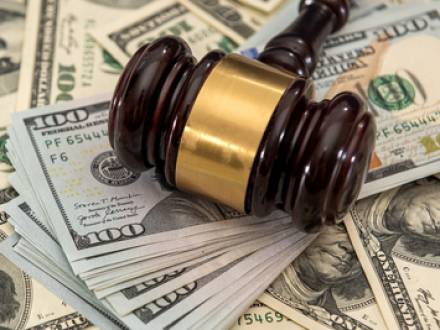 As of June 2025, policy analysts, legal scholars, and former Justice Department officials continue to debate whether there has been a measurable slowdown in white-collar crime prosecution during Trump’s term, and what that slowdown means for the enforcement of federal laws targeting corporate fraud, securities violations, and banking crimes.
As of June 2025, policy analysts, legal scholars, and former Justice Department officials continue to debate whether there has been a measurable slowdown in white-collar crime prosecution during Trump’s term, and what that slowdown means for the enforcement of federal laws targeting corporate fraud, securities violations, and banking crimes.
If you are facing federal charges for a federal financial offense, you need to understand how shifts in federal enforcement priorities — past and present — might affect your case. At Law Offices of Hal M. Garfinkel LLC, Chicago Criminal Defense Attorney, our Illinois federal criminal defense attorney can help you understand what you are facing in a federal criminal investigation and what the consequences may be.
Has There Been a Recent Decline in Federal Financial Crime Enforcement?
Multiple sources indicate that federal white-collar prosecutions have declined under the Trump administration, and that was true in President Trump’s last term as well. According to a 2020 report by Syracuse University’s Transactional Records Access Clearinghouse (TRAC), white-collar prosecutions hit a historic low during Trump's previous term.
Federal Hate Crime Charges for Alleged Antisemitism on the Rise
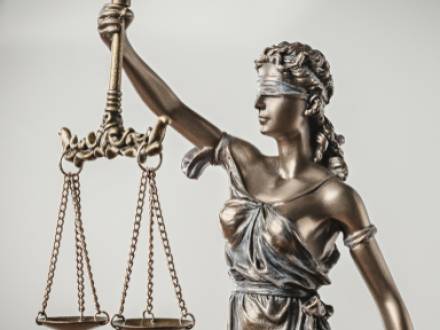 In the years since Congress expanded the scope of federal hate crime laws, law enforcement has devoted increasing resources to investigating antisemitic threats, violence, and property damage. In May and June 2025, high-profile incidents in Colorado, Washington, D.C., and Chicago have drawn national attention and renewed scrutiny from federal prosecutors.
In the years since Congress expanded the scope of federal hate crime laws, law enforcement has devoted increasing resources to investigating antisemitic threats, violence, and property damage. In May and June 2025, high-profile incidents in Colorado, Washington, D.C., and Chicago have drawn national attention and renewed scrutiny from federal prosecutors.
People accused of these acts face not only state charges but also aggressive pursuit under federal hate crime statutes. The legal and reputational consequences of a federal indictment can be life-altering, making a Chicago, IL federal criminal defense attorney absolutely essential.
What Makes a Crime a Federal Hate Crime?
Federal hate crime law is primarily defined under 18 U.S.C. § 249, which makes it a crime to willfully cause or attempt to cause bodily injury because of a person’s actual or perceived race, religion, national origin, gender, gender identity, sexual orientation, or disability.




